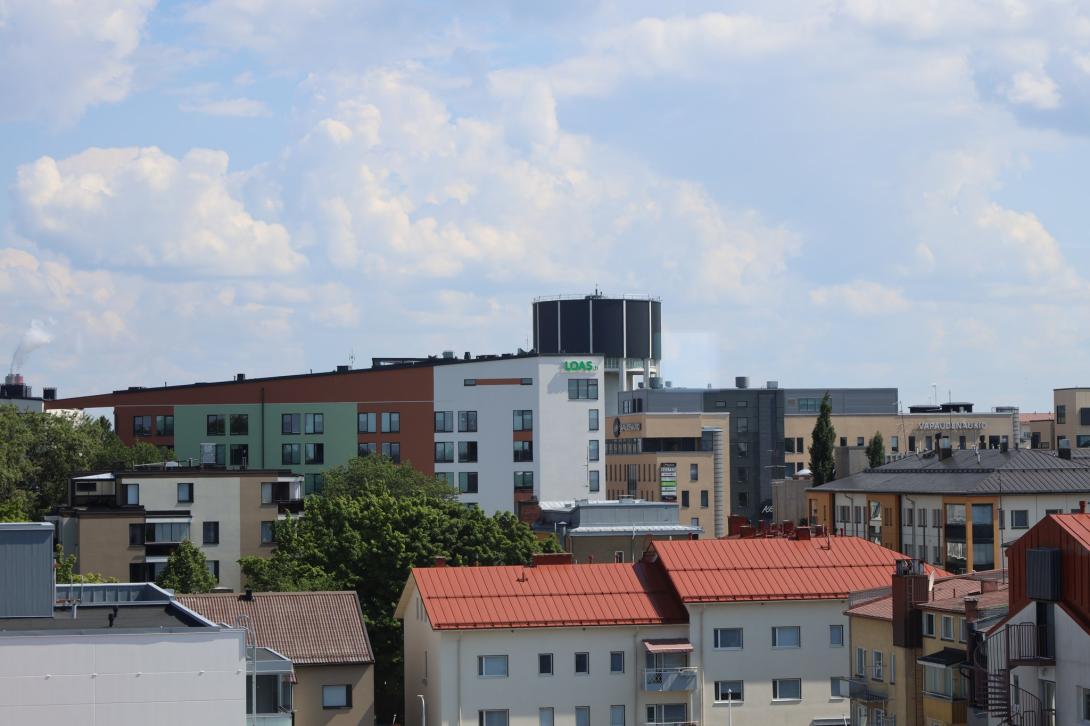The City of Lappeenranta has received funding of €600,000 from the European Union’s Pilot Cities Horizon programme to develop the elasticity of demand in district heating. The funding will be divided equally between the City of Lappeenranta and Lappeenrannan Energia, a group company owned by the city.
The funding will be allocated over two years with the aim of accelerating the development of energy elasticity mechanisms in cities. “In Lappeenranta, the focus will be on the building-specific implementation of elasticity in district heating,” says the City of Lappeenranta’s Environmental Director Ilkka Räsänen, who is delighted with the opportunity presented by the funding.
“The energy sector is undergoing constant change. Climate-friendly and low-cost solutions are being sought everywhere. Increased elasticity mechanisms have proven to be necessary to ensure a sufficient supply of energy and to balance prices.”
The district heating operator Lappeenrannan Energia will be responsible for the practical implementation of the work in Lappeenranta. “We have developed a low-threshold concept solution that is based on a digital twin to implement elasticity in a building,” says Rami Koivula, Development Manager at Lappeenrannan Energiaverkot.
“A digital twin is a virtual model that aims to digitally represent the physical world and actions as well as generate predictions from them. In the big picture, the goal of elasticity is to create a virtual battery of significant size that could be used for the emissions management of district heating and energy market operations in the spring and autumn months,” elaborates Koivula.
EU pilot cities to receive millions for climate work
The City of Lappeenranta received funding because the EU considers the city to be a pioneer in climate work and in developing energy systems and energy efficiency in buildings. Lappeenranta’s membership of the EU City Mission contributed to the funding as it comes from the funding directed towards the City Mission.
The goal of the EU mission cities is to achieve climate-neutrality by 2030. To support the cities, the EU’s Horizon Europe and NetZeroCities programmes are providing a €360 million funding package to support city-specific pilot projects.
In the current allocation, a total of €15 million was divided among 26 pilot cities. The cities will become role models in testing solutions for rapid decarbonisation.
Cities teach each other
The pilot cities will receive direct support from experts in the other cities and have the opportunity to learn from each other over the two-year programme.
The results and experiences of the work carried out by the pilot cities will be shared alternately with non-pilot cities selected for a twinning programme, thus multiplying the impact of the programme on the efforts of European cities to become climate-neutral.
“The elasticity of demand method in district heating applied to buildings in Lappeenranta can also be used in cities in other countries,” says Arto Nikkanen, CEO of Lappeenrannan Energia.
“The method being tested in Lappeenranta can be shared with every city in the world that uses district heating, and it can also be applied to other centralised heating solutions. It will give us visibility in Europe and the opportunity to share information and expertise on other energy solutions with others. At the same time, we will be able to learn about solutions and best practices used by others,” says Nikkanen.

Comments